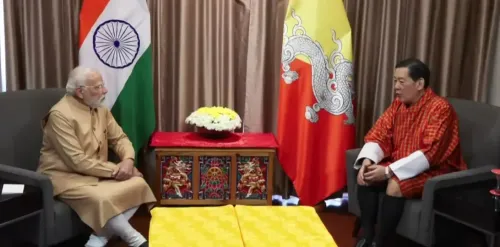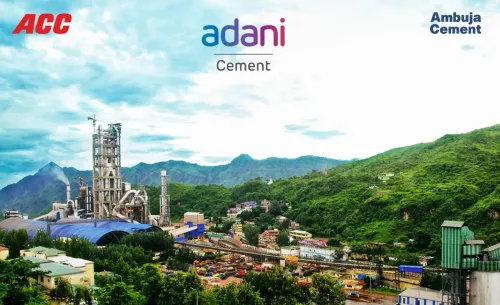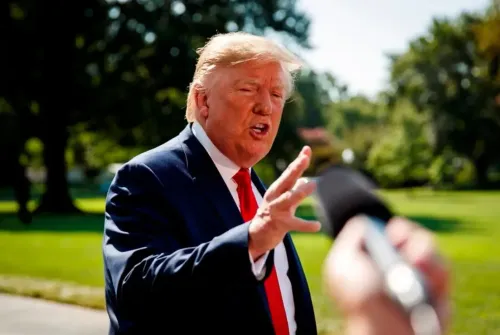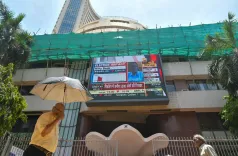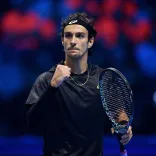Should PM Modi Continue to Represent BJP in Future Elections?
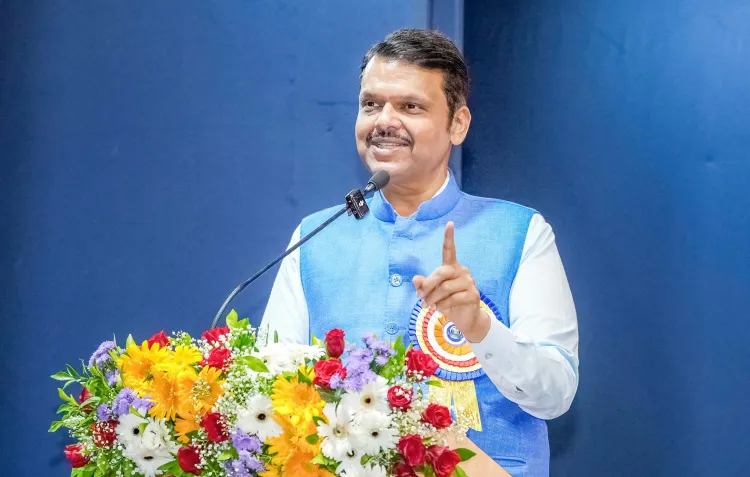
Synopsis
Key Takeaways
- Fadnavis supports Modi's continued leadership.
- Emphasis on youth engagement in politics.
- Commitment to addressing the Maratha reservation issue.
- Political dynamics of caste are evolving.
- Mahayuti government aims for unity in future elections.
Mumbai, Sep 25 (NationPress) Maharashtra's Chief Minister Devendra Fadnavis asserted on Thursday that Prime Minister Narendra Modi's age is just a number and emphasized that he should continue to represent the BJP in future elections, highlighting the remarkable progress the nation has made under his leadership.
During an interview at the India Today conclave, Fadnavis addressed the upcoming selection of the BJP's president. "I am active within the BJP, and I know you follow our activities closely. Decisions regarding roles in the party are not made by individual workers; instead, the party determines that. For the time being, I am committed to my role in Maharashtra for five years. The BJP will handle the choice of a national president, so there’s no need for concern. Speculation about potential candidates is merely media fodder. The RSS chief has also stated that this is the responsibility of the BJP, and I am not privy to those discussions as I am not part of the parliamentary board, but I am on the elections committee," he explained.
Fadnavis also responded to Congress MP Rahul Gandhi's appeal to India's Gen Z to take a decisive stand against alleged vote manipulation, retorting, "Those enamored with Nepal can choose to stay there."
"The youth of India are too busy to engage in protests. Gen Z has a different mindset. Rahul Gandhi stands alone in his efforts; he lacks the support needed to unseat the government. His call to Gen Z will fall flat," the Chief Minister remarked when questioned about the opposition's attempts to rally this demographic for significant actions akin to the recent protests in Nepal that led to the ousting of the K.P. Sharma Oli-led administration.
While acknowledging the historical connections between Nepal and India, he noted, "Today, the two nations are vastly different. India has achieved significant milestones, emerging as the world's fourth-largest economy. Our youth are thriving in startup ecosystems and fields like AI, engineering, and biotechnology, making an impact globally."
Addressing the recent protests led by pro-Maratha reservation activist Manoj Jarange Patil, Fadnavis stated that while the agitation has concluded, challenges remain. "We are committed to supporting the Maratha community," he added.
Regarding the posters and advertisements displayed across the state following Jarange Patil’s agitation, he clarified, "These were initiated by my party, and the term Devabhau, which is commonly used, was featured. This advertisement was a declaration of our commitment. While some found it upsetting, we have honored our promise to the Maratha community by ensuring that no one’s rights are infringed upon."
"The reservation issue is not new; it has persisted for over 40 years. I chose to confront these challenges. Aspiring for progress is commendable, and if any community seeks more means for advancement, that is positive. However, we must strike a balance. Society is ever-evolving. The non-creamy layer norm exists for OBCs. Those with substantial incomes do not require additional benefits," he continued.
"The Supreme Court has indicated the necessity for a creamy layer, ensuring that only those genuinely in need receive assistance. Following the Supreme Court's ruling allowing states to create sub-classifications within the SC quota, a committee has been established. We will soon disclose our findings to the public," he declared.
On the performance of the Mahayuti government in Maharashtra, he stated, "I am here for a full five-year term, as are Deputy Chief Ministers Eknath Shinde and Ajit Pawar; we will collectively face the polls in 2029 as well."
He added, "My caste is not the focal point; everyone is aware of this fact. Caste exists only in the minds of opposition leaders, not among the populace."
"All three of us are seasoned leaders. We understand our limits. While everyone can have aspirations, we are aware of where to draw the line, ensuring harmony. We will work together again in 2029; there is no doubt that Shinde and Ajit Pawar will be with us. In politics, different decisions can arise, so my party may have varying views in the future. Thus, it is not certain that Ajit Pawar and Eknath Shinde cannot ascend to the Chief Minister position later," he remarked.
He asserted that certain urban naxal-type organizations were associated with the INDIA bloc, influencing the narrative of 'constitutional change' during the Lok Sabha elections. "We struggled to counter this, but in the Vidhan Sabha elections, we successfully achieved our objectives," he concluded.

